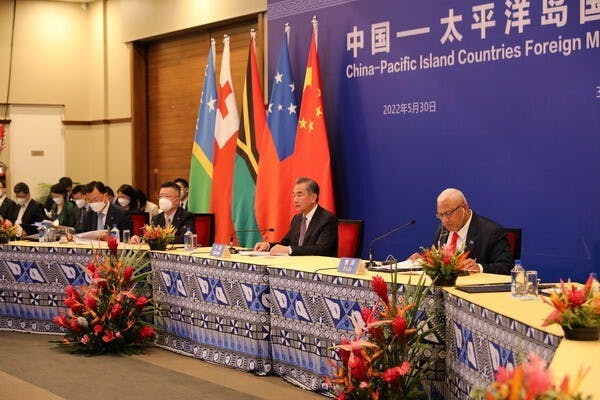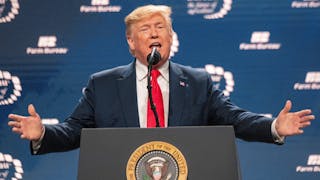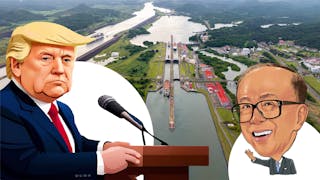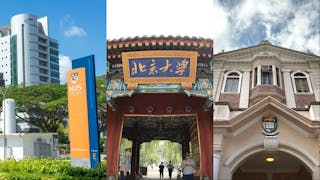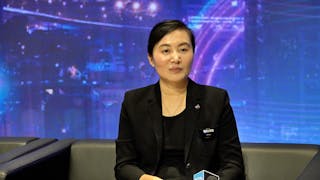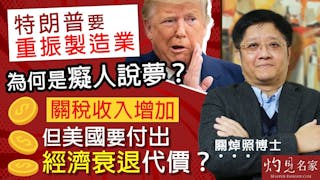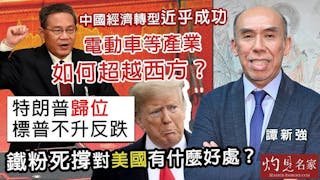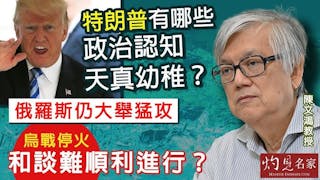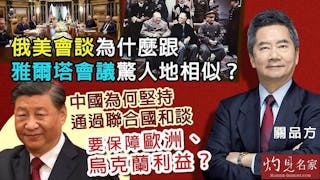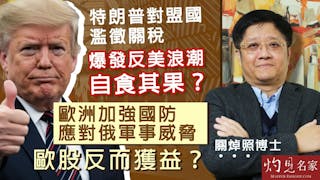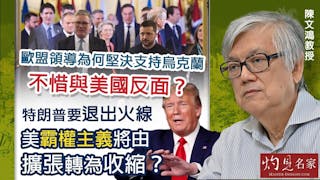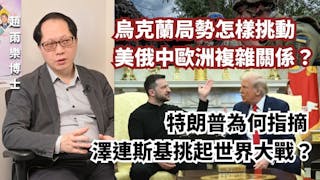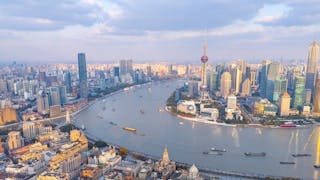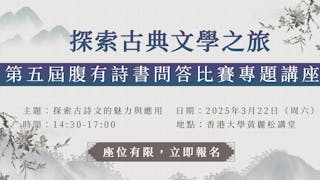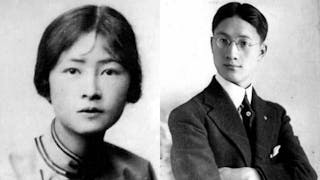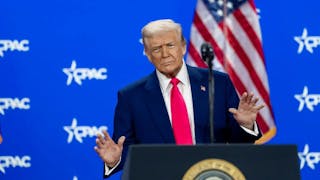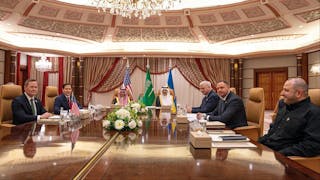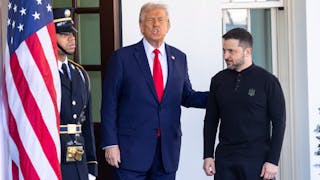如果美國國務卿布林肯在5月26日表示,美國政府對中國的態度是與其合作夥伴結盟,並在競爭中勝過北京,那麼這種結盟和競爭,可以從美國及其盟國如何看待對中國外交部長王毅最近訪問太平洋島國作出的反應可見一斑。
王毅旋風訪南太 圍棋戰略反圍堵
王毅在5月26日由所羅門群島開始,對8個太平洋島國的訪問,6月4日結束最後一站帝汶之行。他訪問了所羅門群島、基里巴斯、薩摩亞、斐濟、湯加、瓦努阿圖、巴布亞新畿內亞和東帝汶,除了「雲訪問」了密克羅尼西亞,還通過視像會見了庫克群島和紐埃島的領袖。王毅還在斐濟主持了第二次中國──太平洋島國外長會。
王毅在訪問所羅門群島時中重申,中方旨在加強與太平洋島國朋友的交流,增進互信,凝聚共識,深化友誼與合作。所羅門群島外交部長馬內萊表示,中國的支持對於所羅門群島在發展經濟、抗擊新冠疫情和改善民生方面的努力至關重要。雙方同意在農業、漁業、林業、礦產、衛生和應對疫情、減災工作和工業發展等領域開展合作。
與所羅門簽協議 美國及盟友警惕
然而,中國與所羅門群島較早時達成的安全合作框架協議,引起了美國及其亞太盟友的注意和警惕,他們認為中國的舉動「具挑釁意味」。
對中所安全合作框架協議更客觀的分析表明,中國並沒有真正試圖將太平洋島嶼「軍事化」。
美國與澳洲對中所合作協議的敏感反應,可以追溯到2019年發生的事情,當時所羅門群島議會一個特別工作組建議政府,應將外交承認從台灣轉向中華人民共和國,並批評美國忽視當地經濟發展。
在中國與所羅門群島於4月建立更密切的經濟和安全關係之前兩個月,美國在2月宣布將重開駐所羅門群島大使館。美國在1993年關閉其位於霍尼亞拉的大使館,現在則通過重開大使館來修補對美所關係造成的損害。
王毅此次薩摩亞之行,簽署了衛生、教育、公共管理、體育、農業等領域的合作協議。
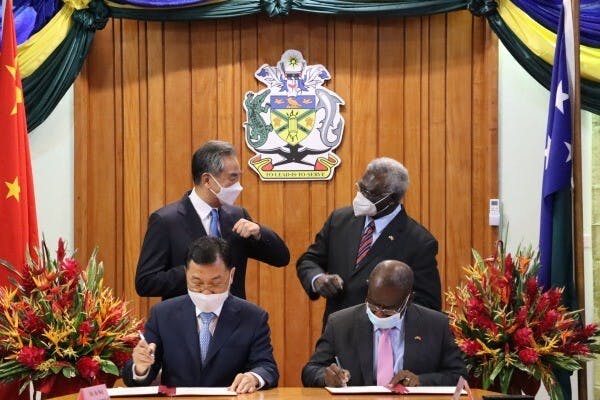
斐濟拒做後花園 明言屬於太平洋
就在王毅5月29日抵達斐濟之前,斐濟總理姆拜尼馬拉馬表示「斐濟不是任何人的後花園」,暗示斐濟不想被包括美國和澳洲在內的任何大國視作自己的勢力範圍。姆拜尼馬拉馬會見澳洲外交部長黃英賢時說,「我們是太平洋大家庭的一部分」。斐濟在5月加入美國主導的印太經濟框架時,似乎傾向美國。
5月29日,王毅在斐濟首都蘇瓦會見太平洋島國論壇秘書長普納。王毅表示,中方願與論壇加強對話,探討開始海洋生態保護、電子商務合作,並歡迎更多島國優質産品進入中國市場。
5月30日,中國國家主席習近平向第二次中國──太平洋島國外長會發表書面致辭,表示中國高度重視南南合作,中國一貫堅持大小國家一律平等,中國始終是太平洋島國是志同道合的好朋友,中國願同太平洋島國一道,維護亞太和平穩定、促進各國發展繁榮。
6月1日,王毅訪問湯加時表示,中國無意與其他國家就對太平洋島國的影響力進行「地緣爭奪」。
6月3日,王毅訪問巴布亞新畿內亞時表示,中方發表了立場文件,集中闡述中國與太平洋島國相互尊重、共同發展的願景,打造應對氣候變化、脫貧發展、防災減災、農業推廣、菌草技術(利用菌草栽培食用菌、藥用菌和生產蘑菇蛋白飼料)和應急儲備庫的區域合作中心。
華府倡南太夥伴 島國卻同床異夢
儘管王毅再次保證中國無意在太平洋島國與其他國家競爭,但美國及其盟國對中國的倡議卻作出迅速反應。
6月24日,美國、澳洲、日本、紐西蘭和英國發表了關於建立「藍太平洋夥伴」(PBP)的聲明,向太平洋島國提供21億美元發展援助經費。聲明稱,此類援助將協助太平洋島國「增強區域意識」,同時與世界接觸,擴展機會。
然而,太平洋島國並不是鐵板一塊。7月初,基里巴斯決定退出太平洋島國論壇,理由是該論壇沒有充分解決密克羅尼西亞群島國家的關切。2021年2月,數個密克羅尼西亞群島國家威脅退出論壇,認為他們屬意的論壇秘書長的候選人被波利尼西亞外交官忽視了,儘管有一個默認的共識,即秘書長職位應由3個群島,即波利尼西亞、密克羅尼西亞和美拉尼西亞群島的國家代表輪任。顯然,太平洋島國的區域集團內部存在地緣政治分歧。
7月12日,美國副總統賀錦麗以視像方式,在太平洋島國論壇發表重要講話,她形容「壞蛋」正在「尋求破壞基於規則的秩序」。她表示,美國和太平洋島國共享相同的傳統和文化,矢言要深化美國與太平洋島國的接觸和夥伴關係。 美國將在湯加和基里巴斯建立兩個新的大使館。賀錦麗表示,美國政府將要求國會在未來10年內從每年2100萬美元的經援,增加到每年6000萬美元。這些資金將幫助太平洋島國提高氣候適應能力、規劃海洋空間、保護海洋、加強海上安全及打擊非法捕魚。
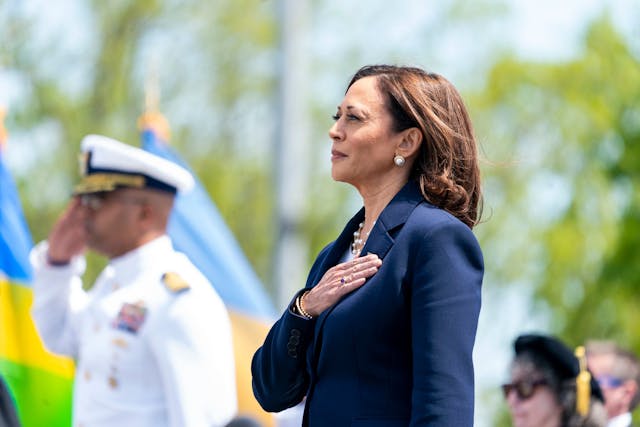
中美競相灑金錢 太平洋島國受惠
中美競爭在太平洋島國表現出明顯的態勢。中國最近在4月份與所羅門群島達成的協議,包括在人道主義援助、救災和維護社會秩序方面的合作。但中國可以在所羅門群島「進行船舶訪問、後勤補給、中途停留和中轉」的條款,引發了美國及其盟國的敏感。美國和澳洲仍將太平洋島國視為自己的勢力範圍。
紐西蘭反對任何將太平洋島國「軍事化」的企圖。然而,通過加入以美國為首的PBP,紐西蘭或許已經成為美國試圖「遏制」中國崛起的不可或缺的盟友。紐西蘭總理阿德恩7月13日表示,紐西蘭警方將繼續幫助所羅門群島和斐濟,以提高當地警察的能力。
一方面,美國與其盟國和中國之間的深刻不信任,仍然突出和嚴重。這種不信任可能歸因於中國在南海的幾個島嶼上建立的軍事設施,以及中國在太平洋島嶼上非常自信的外交。
對於太平洋島國而言,美中競爭對這些島國有利,因為雙方都向該地區注入了更多的投資和人道主義援助。然而,鑑於太平洋島國的意見並不一致,正如基里巴斯退出太平洋島國論壇所表明的那樣,以美國為首的盟國試圖對這些島嶼施加更深層次影響的嘗試,可能比傳統觀念設想的更為複雜。從種族上講,一些太平洋島國可能不想輕易成為外國勢力,尤其是那些由白人統治和支配的國家的「後花園」。儘管他們批評中國對太平洋島國的影響和滲透,但與許多太平洋島國一樣,中國是一個在第二次世界大戰中遭受巨大苦難的國家。無論如何,日本現在是美國領導的盟國中不可或缺的一部分,這些盟國也會尋求在太平洋島國保持影響力。
總的來說,對中國對太平洋島國進取的外交活動,美國的反應變得敏感而迅速。美國拉攏盟國與中國競爭的政策,從他們在太平洋島國的軟實力競爭中可以看出,受益的是太平洋島國,這些島國將獲得美國及其盟國,以及中國的大量援助。美元外交已成為中美在太平洋島國競爭中最明顯的特徵。
The Sino-US Competition for Soft Power in Pacific Islands
If the US Secretary of State Anthony Blinken said on May 26 that the American administration’s approach to the People’s Republic of China (PRC) is to align with its partners and outcompete Beijing, such alignment and competition can be seen in how the US and its allies have reacted to Chinese Foreign Minister Wang Yi’s recent visit to the Pacific Islands.
Wang began his eight-nation tour in the Solomon Islands on May 26 and terminated his trip in the last stop at Timor on June 4. He visited the Solomon Islands, Kiribati, Samoa, Fiji, Tonga, Vanuatu, Papua New Guinea and Timor, apart from an online visit to Micronesia and met leaders of the Cook Islands and Niue through video links. Wang also chaired the Second China-Pacific Island Countries Foreign Ministers’ Meeting in Fiji.
During his trip to the Solomon Islands, Wang reiterated that China aimed at strengthening communications with friends in the Pacific Islands, enhancing mutual trust, building consensus, deepening friendship and cooperation. The Solomon Islands’ Foreign Minister Jeremiah Manele said that China’s support was crucial in shaping the Island’s efforts at developing the economy, fighting Covid-19 and improving the people’s livelihood. Both sides agreed to cooperate in the areas of agriculture, fishery, timber, minerals, health and pandemic response, disaster mitigation work, and industrial development.
However, an earlier agreement between China and the Solomon Islands to strengthen cooperation raised the eyebrows and alarms of the US and its Asian allies, which perceive the Chinese moves as “aggressive.”
A more objective analysis of the Chinese-Solomon Islands agreement shows that there was not really any attempt made by the PRC to “militarize” the Pacific Islands.
The US and Australian sensitivity to the Sino-Solomon Islands agreement could be traced back to the development in 2019, when the Solomon Islands parliamentary taskforce suggested that the government should switch its diplomatic recognition from Taiwan to the PRC and when it criticized the US for neglecting the local economic development.
Two months prior to the PRC’s establishment of closer economic and security relations with the Solomon Islands in April, the US had repaired its damage in the Islands by reopening its embassy in Honiara after closing it down in 1993.
During the trip to Samoa, Wang Yi signed a cooperation agreement in the areas of health, education, public administration, sports and agriculture.
Just before Wang arrived at Fiji on May 29, Fiji Prime Minister Frank Bainimarama said that “Fiji is not anyone’s backyard,” implying that Fiji did not want to be used by any powers, including the US and Australia, to maintain their sphere of influence. When Bainimarama met Australian Foreign Minister Penny Wong, he said that “we are a part of a Pacific family.” Fiji appears to tilt toward the US in May when it joined the US-led Indo-Pacific Economic Framework.
On May 29, Wang Yi met the Secretary General of the Pacific Islands Forum, Henry Puna, in Suva. Wang said that China was ready to enhance dialogue with the Forum and cooperate in marine ecological protection, e-commerce and the import of quality products to the large Chinese market.
On May 30, PRC President Xi Jinping delivered his speech at the second China-Pacific Island Countries Foreign Ministers’ Meeting, saying that China attaches great importance to South-South cooperation, that the PRC is committed to equality of all countries, that Beijing is a good friend sharing the same ideal and faith of expanding ties with the Pacific Islands, and that China is keen to pursue peace, stability and development in the region.
On June 1, when Wang Yi visited Tonga, he remarked that China has no desire to have “geopolitical competition” with other countries over the influence on the Pacific Islands.
On June 3, as Wang Yi visited Papua New Guinea, he said that China issued a position paper focusing on mutual respect and common development between the PRC and Pacific Islands countries, forging cooperation in various areas such as climate change, poverty alleviation, disaster prevention and mitigation, agricultural promotion, Juncao technology (the use of Juncao to cultivate edible and medicinal fungi and to produce mushroom protein forage) and the reserve of emergency supplies.
Despite the reassurance from Wang that the PRC is uninterested in competing with other countries over the Pacific Islands, the US and its allies have reacted to China’s initiatives quickly.
On June 24, a statement was released by the US, Australia, Japan, New Zealand, and United Kingdom on the establishment of the Partners in the Blue Pacific (PBP), which provides US$2.1 billion in development assistance to the Pacific Islands. The statement asserts that such assistance would deliver results for the Pacific effectively and efficiently, “bolster Pacific regionalism,” and benefit the peoples in the Pacific Islands.
However, the Pacific Islands are by no means united. In early July, Kiribati decided to withdraw from the Pacific Islands Forum on the grounds that the Forum had not adequately addressed the concerns of Micronesian countries. In February 2021, Micronesian leaders wanted to leave the Forum after their preferred candidate for the secretary general position of the Forum was neglected in favor of a Polynesian diplomat, although there was a tacit consensus that the top position should be shared between three groups of Islands states, namely Polynesian, Micronesian and Melanesian countries. Clearly, there was a geopolitical split within the regional bloc of the Pacific Islands.
On July 12, US Vice-President Kamala Harris delivered an important speech online at the Pacific Islands Forum, saying that “bad actors” are “seeking to undermine the rules-based order.” Her speech appealed to the heritage and culture shared by the US and Pacific Islands, and she vowed to deepen the US engagement and partnership with Pacific Islanders. The US would establish two new embassies in Tonga and Kiribati. Harris remarked that the US government would request from the Congress an increase from US$21 million per year to US$60 million per year for the next 10 years. These funds would help Pacific Islands to deal with climate resilience, marine planning, marine security, marine conservation, and the combat against illegal fishing.
Obviously, the US competition with China is prominent in the Pacific Islands. China’s recent agreement with the Solomon Islands in April has embraced cooperation in humanitarian assistance, disaster response, and the maintenance of social order. But a clause that says that China can “make ship visits to, carry out logistical replacement in, and have stopover and transition” in Solomon Islands has triggered the sensitivity of US and its allies. The US and Australia still see the Pacific Islands as their sphere of influence.
New Zealand objects to any attempt at “militarizing” the Pacific Islands. Yet, by joining the US-led PBP, New Zealand has perhaps given an image of being an indispensable ally in the US attempt at “containing” the rise of China. New Zealand Prime Minister Jacinda Ardern said on July 13 that New Zealand’s police would continue to help build up the capability and capacity of local police in the Solomon Islands and Fiji.
Profound distrust between the US and its allies on the one hand and China on the other remains prominent and serious. Such distrust could be attributable to the military installations made by China on a few islands on the South China Sea, and to the very assertive Chinese diplomacy in the Pacific Islands.
For the Pacific Islands, the US-China rivalries benefit the Islands as both sides have injected more investment and humanitarian assistance to the region. However, given the fact that the Pacific Islands are not fully united, as seen in Kiribati’s withdrawal from the Pacific Islands Forum, the attempts by the US-led allies to exert deeper influence on the Islands may be more complex than conventional wisdom assumes. Racially speaking, some Pacific Islands may not want to easily become the “backyard” of foreign powers, especially those countries that are governed and dominated by the white people. Despite criticisms of the Chinese influence and penetration in the Pacific Islands, China was a country suffering tremendously in the Second World War as with many Pacific Islanders. Japan, however, is now an indispensable part of the US-led allies that seek to perpetuate their influence in the Pacific Islands.
In conclusion, the US reactions to China’s assertive diplomatic activities in the Pacific Islands have become prominent and swift. The US policy of aligning with its allies and competing with China can be easily seen in their struggle for soft power in the Pacific Islands. The beneficiaries are the Pacific Islands states, which are going to receive tremendous amount of assistance from the US and its allies as well as China. Dollar diplomacy has emerged as the most defining feature of US-China rivalries in the Pacific Islands.





